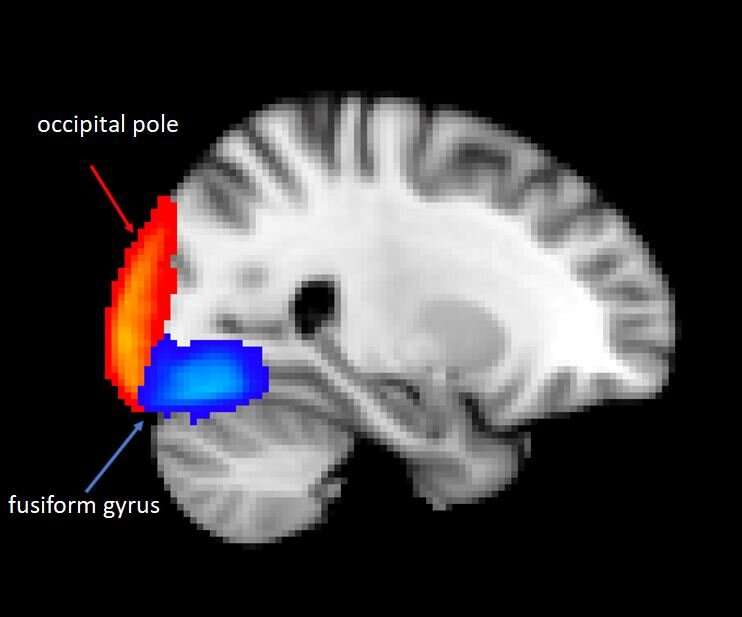
Scientists have measured brain activity in young people with and without depression, and found that the brains of depressed adolescents give a muted reaction to distressing images. Previous research with depressed adults does not show this effect, implying that brain development in adolescence may have specific vulnerabilities to unsettling information, and that perhaps the depressed adolescent brain avoids information which in the end could aggravate the depression. Antidepressant treatment was shown to restore this depressed brain activity to ‘healthy’ levels. The work is presented at the ECNP conference in Lisbon.
The researchers, from the University of Oxford, compared brain activity of 29 depressed adolescents with that of 16 healthy adolescents, aged 13 to 18. They found that when depressed adolescents were shown a series of photos of distressing images, there was reduced activity, as shown on an fMRI brain scan, (compared to non-depressed adolescents) in brain areas related to visual processing; the occipital pole (which processes visual information, found at the rear of the brain) and the fusiform gyrus (which is involved in the processing of faces, body and colors, found near the brain stem and cerebellum). The images depicted scenarios such as someone crying, someone visibly hurt, someone being attacked.
Lead researcher, Dr. Liliana Capitão, said, “The ability to regulate emotions is key to social and emotional development in adolescents. What we have seen in this study makes us believe that depressed adolescents may avoid distressing information, which could potentially intensify their experience of depression. However there are other possible interpretations and we need more work to confirm our ideas. For instance, this could also reflect a form of ’emotional numbness,” where depressed adolescents shut down their emotions and do not feel involved in what’s happening around them, or even reflect difficulties with taking another person’s perspective, as the images showed distressing situations that were happening to others. This effect has not been found in previous work using the same distressing images in adults with depression, which could imply that there are potential vulnerabilities in the brains of depressed adolescents which are not found in the brains of depressed adults.”
The 29 depressed adolescents were given either the antidepressant fluoxetine or a placebo. After a single 10mg dose (a normal starting dose) of fluoxetine, brain activity in depressed adolescents was found to increase to the same level as that of healthy adolescents (the healthy adolescents were not given either the antidepressant or the placebo for ethical reasons). Dr. Capitão said:
“The fluoxetine increased neural activity after a single dose, showing effects on the brain within hours of administration. This could imply that this medication reduces the brain’s avoidance of experiencing these distressing images very early on in treatment. This effect could help these depressed adolescents approach problems which arise in everyday life, by helping them cope with the distressing experience. However, this is just a working hypothesis, and needs to be confirmed in larger studies.”
She said, “We also want to refine our methods, for example by introducing eye-tracking, which would help us understand if participants were actively looking away from the distressing images. It would also be important to improve the images shown, to better reflect the realities of negative situations experienced by teenagers and make them more personal.”
Commenting, Dr. Henricus Ruhe, psychiatrist and principal investigator at Radboudumc, Nijmegen, the Netherlands said: “This is an interesting line of evidence of what might go wrong in young people who are depressed. First, it is unique to have recruited such a sample of (depressed) youngsters and get them involved in this intensive fMRI research and treat them with an antidepressant or placebo. More knowledge about depression in this age-group is extremely important as most affective disorders start in adolescence, but are often unrecognized. As the symptomatology and new episodes seem to worsen over time during early adulthood, depression during adolescence might indicate a window of opportunity to intervene and change the course of illness.
Source: Read Full Article
